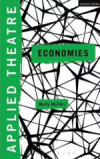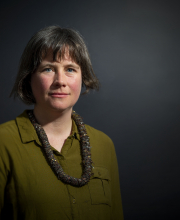| Who is Responsible? Neoliberal Discourses of Well-Being in Australia and New Zealand Policy proposals about social change and well-being shape the implementation of applied theatre projects through technologies such as evaluation practices and funding applications. Representations of projects can, in turn, effect public discourse about who participants are and why they are or are not ‘being well’. Like public policy, applied theatre for social change has to establish a problem that needs to be solved. Drawing on debates about change in applied theatre literature, we consider how funders, governments, and communities call on applied theatre practitioners to frame particular issues and/or people as problematic. We then examine discourses of well-being in Australia and New Zealand, drawing on policy documents and funding schemes to discuss the politics of change in applied theatre in each country. We consider how the field might navigate policies, technologies and public understandings of well-being, change and social good to produce work with and for participants in neoliberalised contexts. |
| Applied Theatre: Economies Applied Theatre: Economies addresses a notoriously problematic area: applied theatre's relationship to the economy and the ways in which socially committed theatre makers fund, finance or otherwise resource their work.
Part One addresses longstanding concerns in the field about the effects of economic conditions and funding relationships on applied theatre practice. It considers how applied theatre's relationship with local and global economies can be understood from different theoretical and philosophical perspectives. It also examines a range of ways in which applied theatre can be resourced, identifying key issues and seeking possibilities for theatre makers to sustain their work without undermining their social and artistic values.
The international case studies in Part Two give vivid insights into the day-to-day challenges of resourcing applied theatre work in Chile, Canada, the UK, New Zealand, Hong Kong and the US. The authors examine critical issues or points of tension that have arisen in a particular funding relationship or from specific economic activities. Each study also illuminates ways in which applied theatre makers can bring artistic and social justice principles to bear on financial and organizational processes. 
|
| The 'diverse economies' of applied theatre Some of the perennial tensions in applied theatre arise from the ways in which practice is funded or financed. They include the immediate material pressures and pragmatic dilemmas faced by theatre makers on the ground and the struggle to secure the resources needed to produce and sustain work or to negotiate the dynamics and demands of particular funding relationships. In the applied theatre literature, there are many examples of groups and organizations that have compromised their political, pedagogic, artistic or ethical principles to make their work economically viable. There are also ongoing debates about the nature of the relationship between applied theatre and the local, national and global economic conditions in which it is produced. These debates examine the extent to which economic conditions shape the forms and intentions of socially committed theatre movements over time. This article takes a practice-based approach, drawing on fieldwork conducted in 2012 with three applied theatre companies: Applied Theatre Consultants Ltd in New Zealand; C&T in the UK; and FM Theatre Power in Hong Kong. This multi-sited organizational ethnography generates critical insights into the ways in which these companies bring social and artistic values to bear on business models and financial relationships. Analysis of the companies’ practice takes seriously the aim of J.K. Gibson-Graham’s (2006) diverse economies project: to imagine and create spaces of economic possibility. Organizational, management and economic processes can be insidious technologies by which capitalist/neo-liberal ideologies infiltrate socially committed theatre and performance. But they can also be critically informed practices, involving considerable ethical consideration, creativity and care. |


